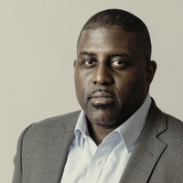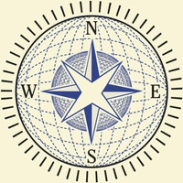 Reuters/Esa Alexander/Pool Reuters/Esa Alexander/PoolTHE NEWS The South African government’s plan to tackle its energy crisis will facilitate corruption and confuse energy policy, the main opposition party and business leaders warned amid fears the graft that has entered other parts of public life will make the energy problems worse. President Cyril Ramaphosa on Thursday declared South Africa’s crippling electricity blackouts a “state of disaster”, and suspended key regulatory steps to speed up investment from private energy producers and reduce reliance on ailing state power utility Eskom. He also said he would appoint a minister for electricity. Opposition parties are preparing lawsuits in response. They argue the plan will encourage corruption by making it easier to execute procurement scams, such as kickbacks for awarding contracts to politically-connected businesses. That was the case when a similar arrangement was in place at the height of the fight against Covid-19. Cas Coovadia, the chief executive of Business Unity South Africa, a non-profit company that represents the interests of businesses in the country, said the creation of an electricity minister was “a bad idea that will add to confusion and turf wars rather than solve the problem.” SAM’S VIEW Ramaphosa’s move risks a repeat of recent history. South Africa was gripped by several scandals over alleged corruption at the height of the COVID-19 pandemic when a similar state of disaster was implemented. South African investigators last year earmarked COVID-19 contracts worth around 2.1 billion rand ($137.12 million) as being related to suspected corruption. Ramaphosa authorized the investigation into coronavirus spending in 2020 following a public outcry. The country’s Special Investigating Unit (SIU), which revealed that it uncovered cases of personal protective equipment being overpriced and services not delivered despite money being paid, said it was “unacceptable that so many contracts associated with saving lives and protecting livelihoods were irregular, unlawful or fraudulent.” It found irregularities in 2,803 government contracts. True, simplifying procurement may help speed up repairs at Eskom facilities by private contractors. But the dangers associated with corruption far outweigh the benefits. Eskom has a track record of corruption. In one infamous example, the company once paid 80,000 rand ($4,469) for knee guards worth less than 300 rand ($16). In January it emerged that the outgoing chief executive, who took on alleged criminal syndicates that have drained the state utility through corrupt contracts, allegedly survived an attempt to kill him with cyanide-laced coffee. Ramaphosa also seems to be trying to centralize power around the presidency, with the new minister working closely with him. This would mean that with the new structure Eskom will come under the stewardship of the Public Enterprises Department but receive policy direction from the Department of Mineral Resources and Energy. That’s likely to exacerbate Incoherence in the government’s energy strategy, which has bedeviled the economy for several years and stems from too many officials working with competing interests. Regardless, rolling blackouts are likely to continue for some time, despite the declaration of the state of disaster. Solving the power crisis involves cutting through a cluttered political landscape, rather than tinkering with cabinet posts and the laws. Ramaphosa is merely adding deck chairs when the entire economic ship is sinking. ROOM FOR DISAGREEMENT Ramaphosa’s plans dovetail with Eskom’s strategy to increase energy availability and stop rolling blackouts within two years, two government officials told Semafor. The plans include bringing in external experts to work with plant managers at its top six priority power stations, working with the World Bank to develop a procurement system that will help it reduce price inflation by suppliers, an “aggressive” cost-cutting plan to free up money to be used to rehabilitate machinery, and improved maintenance planning. THE VIEW FROM CAPE TOWN John Steenhuissen, leader of the opposition Democratic Alliance, said his party would go to court to oppose the declaration, which he said would create a “looting frenzy”. In a separate move, one of the labor unions at Eskom is working with the opposition United Democratic Movement to launch a legal challenge to the use of the Disaster Management Act. Meanwhile, Lawson Naidoo, who heads the Council for the Advancement of the South African Constitution civil society group, said it is “clear the president is concerned about the potential of corruption under this measure” which is why Ramaphosa announced that the auditor-general will oversee procurement. NOTABLE - “Criminal networks are deeply, deeply entrenched in Eskom and have taken control of key aspects of its operations,” an official at the Global Initiative Against Transnational Organised Crime told the Financial Times when it reported on the extent of graft in the company. Experts say the criminal practices range from the theft of coal to the targeting of whistleblowers by assassins.
- The ruling African National Congress is still trying to recover from the findings of a damning report that claimed billions of dollars were stolen from state coffers under Ramaphosa’s predecessor, Jacob Zuma. The Zondo commission, a judge-led panel, delivered its findings last year in a 5,000 page report that said state resources were plundered in what it called “an assault on our democracy.”
| 







